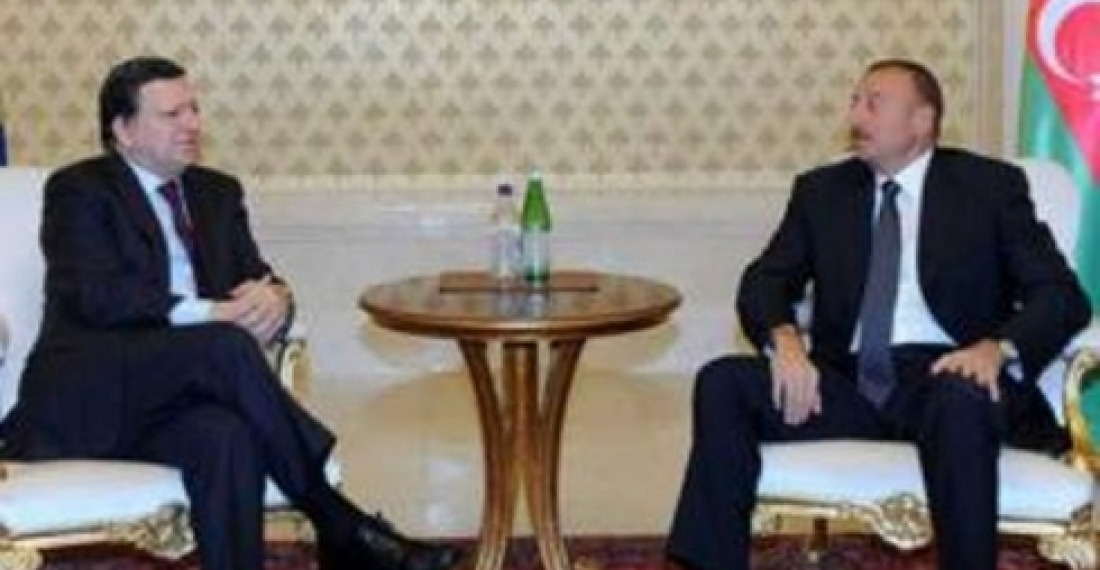Президент Европейской Комиссии Жозе Мануэль Баррозу подчеркнул важность отношений между Европейским Союзом и Азербайджаном во время короткого, но весьма значительного официального визита в Баку, в ходе которого он встретился с президентом Ильхамом Алиевым.
Программа визита Баррозу в Азербайджан началась со встречи один-на-один с президентом Ильхамом Алиевым, в ходе которой обсудили двусторонние отношения. Затем встреча продолжилась в расширенном составе.
Позднее, выступая на пресс-конференции, президент Баррозу сказал:
"Азербайджан является очень важным партнером для Европейского Союза. Мы достигли надежных стратегических отношений в энергетической сфере. И опираясь на это, мы хотим двигаться к более долгосрочной ассоциации, основанной на демократии и общих ценностях, в частности в сфере фундаментальных свобод.
Я очень открыто объяснил президенту Алиеву, что мы верим в то, что многопартийная демократия, свободное общество и экономика это лучший путь достижения стабильности и процветания.
Еще одна важная причина быть здесь сегодня в Баку это отметить прочные партнерские энергии, который мы создали. Азербайджан сегодня является одним из основных и наиболее надежных партнеров в энергетической сфере ЕС, и это положительно влияет на наши экономики и энергетическую безопасность. "
Баррозу заявил, что ЕС и Азербайджан находятся на пути к углублению своих отношений, добавив:
"ЕС хочет расширить и углубить отношения с Азербайджаном. Необходим единый подход в рамках Восточного Партнерства. Надеюсь, что стороны в ближайшее время завершат работу над новым документом, а я смогу встретить Ильхама Алиева в Брюсселе, и мы сможем подписать важное соглашение".
Баррозу также говорил о важности контактов на уровне гражданского общества и о том, что ЕС продолжит поддержку мирного разрешения Нагорно-Карабахского конфликта.
Со свой стороны президент Алиев также подчеркнул о важности отношении между ЕС и Азербайджан и сказал, что они являются приоритетом для Азербайджана.
Президент Баррозу позже выступил с лекцией в Азербайджанской Дипломатической Академии в течение которой он говорил о политике Евросоюза по отношению к своим восточным соседям. Говоря об отношениях ЕС с Россией, президент Баррозу сказал:
"Мы по-прежнему заинтересованы в хороших отношениях с Россией. Мы соседи. Никто не заинтересован в возвращении к прошлым конфронтациям. По крайней мере, никто в Европейском Союзе. Но для того чтобы это произошло Россия, так же как и все наши партнеры, должны соблюдать международные нормы и ценности, и должны уважать суверенные решения наших общих соседей."
Источник: commonspace.eu
фото: Президент Европейской Комиссии с президентом Азербайджана на встрече в Баку, 14 июня 2014 года (фото любезно предоставлено пресс-службой президента Азербайджана.)







